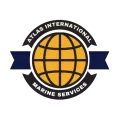
The ongoing conflict between the Houthis and vessels suspected of carrying weapons to Israel has emerged as a significant maritime security challenge, affecting global shipping routes and international trade.
This blog explores the multifaceted nature of this crisis, its implications, and the international response.
Who Are the Houthis?
The Houthi movement, formally known as Ansar Allah, originated from Yemen’s Zaydi Shia community.
What began as a moderate theological group in the 1990s has evolved into a formidable military and political force.
With significant support from Iran, including weapons transfers and training, the Houthis have developed sophisticated military capabilities that enable them to project power well beyond Yemen’s borders.
Official Stance and Motivations
The Houthis have been explicit in their intentions, warning that they will target all ships heading to Israel, regardless of nationality.
Their stated motivation is support for Palestinians, demanding that Gaza receives necessary humanitarian aid.
The movement has firmly declared that their campaign in the Red Sea will continue until Israel ends its operations in Gaza and lifts its siege.
Recent Incidents and International Response
Notable Cases
Several significant incidents highlight the severity of the situation:
Spanish Port Denials: Spain has taken a strong stance by denying port entry to ships suspected of carrying weapons to Israel. A notable example is the Danish-flagged ship Marianne Danica in May 2024.
Maersk Controversy: An investigation revealed potential violations of Spanish embargoes on military shipments to Israel by Maersk, leading to increased scrutiny of commercial shipping operations.
The Borkum Case: The cargo ship Borkum’s decision to avoid Spanish ports after accusations of weapons transport demonstrates the growing complexity of maritime logistics in this context.

Economic Impact and Route Alterations
The threat has led to significant economic repercussions:
Shipping costs in the Suez region have surged by approximately 180% from October 2023 to January 2024
Global freight rates have increased by about 120% compared to late October 2023 levels
The rerouting of vessels has reduced effective global shipping capacity by roughly 9%
These disruptions are expected to contribute 0.7 percentage points to global core goods inflation during the first half of 2024
International Maritime Security Response
The international community has responded with several initiatives:
Operation Prosperity Guardian: A U.S.-led multinational initiative aimed at securing the Red Sea and protecting commercial vessels
Naval Escorts: Various countries, including China, have deployed naval assets to escort their vessels through high-risk areas
International Maritime Security Construct (IMSC): This organization coordinates international efforts to protect shipping lanes from state-linked threats
Timeline of Escalation
The situation has intensified over recent months:
October 2023: Initial missile and drone attacks targeting Israel
November 2023: Seizure of the Galaxy Leader cargo ship, marking a significant escalation
December 2023: Multiple attacks on commercial vessels and the launch of Operation Prosperity Guardian
January 2024: Large-scale attacks intercepted by U.S. and British forces
March 2024: First fatalities recorded aboard a merchant ship due to Houthi missile attacks
Looking Forward
The Houthi threat to ships carrying weapons to Israel represents a complex challenge that intersects with broader regional conflicts and international maritime security.
The situation continues to evolve, with significant implications for global trade, shipping routes, and geopolitical relations.
The international community faces the challenge of balancing security concerns with maintaining vital trade routes while addressing the humanitarian issues that the Houthis claim to be fighting for.
As the situation develops, the effectiveness of current security measures and the potential for diplomatic solutions will be crucial in determining the future of maritime security in the region.
The ongoing crisis serves as a reminder of the interconnected nature of global maritime trade and regional conflicts, highlighting the need for coordinated international responses to such challenges.
Found this article interesting, and useful? Please feel free to interact, recommend and share.
If you have any questions about this topic or would like to discuss your own business needs, please contact us today!
